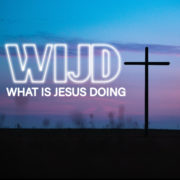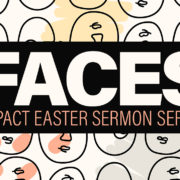Series – Welcome Home Sermon – Thanksgiving 2022
Series – Welcome Home Sermon – Thanksgiving 2022
“Rudyard Kipling lived from 1865 to 1936. He was English, yet born in Bombay, India. He wrote poetry and is the author of books like Captain Courageous, How the Leopard Got His Spots, and The Jungle Books.
Kipling’s writings not only made him famous but also brought him a fortune. A newspaper reporter came up to him once and said, “Mr. Kipling, I just read that somebody calculated that the money you make from your writings amounts to over one hundred dollars a word.”
The reporter reached into his pocket and pulled out a one hundred-dollar bill and gave it to Kipling and said, “Here’s a one hundred dollar bill, Mr. Kipling. Now you give me one of your hundred dollar words.”
Rudyard Kipling looked at the money, put it in his pocket and said, “Thanks!”
In her book Healing From Heaven, Lilian Yeomans tells of a missionary to China who contracted smallpox. The doctors told her that she would probably die, and even if she didn’t, she would be severely disfigured by the disease. Instead of weeping at the news, however, the missionary confounded the doctors by praising the Lord.
Her physicians thought she was delirious but she wasn’t. She was simply following the instructions of Jesus, the Greatest Physician of all. He had given her a vision of two baskets. One which was half full contained her praising. The other which was full contained her illness. The Lord promised that once the praise basket was filled to overflowing, the pox on her body would be gone.
So she kept the hospital ringing with shouts and songs of praise. Sure enough, in the end the smallpox vanished without leaving as much as a single scar.
Joke: Boy invited to Girlfriends for thanksgiving … Went to see Pharmacist … Good cologne for move towards some smooching … got him fixed up … at Girlfriends house … he asked if he could say grace … he went for it … real amazing prayer “rigteousness exalts a nation” … Girl I didm’t know you were so passionate about your faith … You didn’t tell me your dad was a pharmacist.
Cicero who lived in Rome between 106 – 43 BC said that, ”gratitude is not only the greatest of the virtues but the parent of all others”.
Colossians 3:17
“And whatever you do in word or deed, do all in the name of the Lord Jesus, giving thanks to God the Father through Him.”
Ephesians 5:19
“Sing and make music in your heart to the Lord, always giving thanks to God the Father for everything.”
Philippians 4:5-7
“Be anxious for nothing, but in everything by prayer and supplication, with thanksgiving, let your requests be made known to God; …”
“… and the peace of God, which surpasses all understanding, will guard your hearts and minds through Christ Jesus.”
Romans 1:21 (NLT)
“Yes, they knew God, but they wouldn’t worship him as God or even give him thanks. And they began to think up foolish ideas of what God was like. As a result, their minds became dark and confused.”
God’s goodness is manifest in an attitude of gratitude.
Psalm 50:23 (AMP)
“He who brings an offering of praise and thanksgiving honors and glorifies Me; … prepares the way that I may show him the salvation of God.”
Psalm 69:30
“I will praise the name of God with a song, and will magnify him with thanksgiving.”
Psalm 67:5-6
“…let all the people praise thee. Then shall the earth yield her increase…God, shall bless us.”
Psalm 100:4-5
“Enter into His gates with thanksgiving, And into His courts with praise. Be thankful to Him, and bless His name. For the Lord is good; His mercy is everlasting, And His truth endures to all generations.”
Thanks (eucharistia):–gratitude; expressions of grateful language to God as an act of worship, thankfulness, giving of thanks, thanksgiving.
Thanksgiving:– (towdah) to express visible thanks or adoration to God by extending the hands to God in reverence, coupled with offering a sacrifice of praise to God through audible confessions of thanks.
What you appreciate, appreciates!
What you don’t appreciate … depreciates!
Appreciate:— to be grateful or thankful for. OR to raise or increase in value.
Your Job … Your Wife … Your Car … Your Church … Your God
Give it focus … intentional effort … thankfulness
Sonja Lyubomirsky Professor of Psychology at the University of California Author of “The How of Happiness,” a book of strategies backed by scientific research that can be used to increase happiness.
Sonja Lyubomirsky,
“One characteristic of the happiest people is that they are comfortable expressing gratitude for all they have”.
Hedonic Treadmill
Charts of set point … circumstances and GRATITUDE!!!
Being Born Again … reset your genetic set point.
Nehemiah 8:10 “Do not sorrow, for the joy of the Lord is your strength.”
John 17:13 “…that they may have My joy fulfilled in themselves.”
Jesus exercised thanksgiving.
John 6:11 “…when he had given thanks, he distributed to the disciples…”
John 11:40-43 “…Father, I thank thee that thou hast heard me.”
5 Gratitude Observations
1. Gratitude Is Never Invisible
No expression is a heart problem.
Luke 6:45 “For out of the abundance of the heart his mouth speaks.”
2. Gratitude Sustains Joy And Blessings
Sustain pedal on piano. Unforgiveness repeats the offence.
Thanksgiving in everything repeats and accelerates joy.
3. Gratitude Begins Where The Sense Of Entitlement Ends
Direct Deposit Instead Of Cash
Failure to be grateful is at the root of the fall of man. Is that all there is?
4. Grateful People Can Always Find Or Enlarge Blessing
Some spin gold out of every situation … others not so much.
My situation doesn’t have to improve for may gratitude to increase.
5. Gratitude Increases Favour and Creates Opportunities
Joseph never complained about the negative things he went through. Prison to Palace!!!
https://www.mentalhelp.net/blogs/the-psychological-importance-of-gratitude-and-gratefulness/
Emiliana Simon-Thomas, science director of the Greater Good Science Center at UC-Berkeley, not all gratitude is the same. In other words, according to Simon-Thomas, the research is showing that “gratitude expressed—not just felt, but expressed—is actually the most powerful form of gratitude, one that has the most bang for your buck in terms of its impact on your day-to-day psychological experience.” In addition, this is not a matter of going through the motions of saying “thank you” but of really meaning it. It’s the sincerity and focus that results in the nerve cells in the brain producing increased dopamine.
A study of those with experience in depression found: A month of listing things you appreciate raised happiness levels 30% – more than antidepressants.
Chinese researchers looked at the combined effects of gratitude and sleep quality on symptoms of anxiety and depression. They found that higher levels of gratitude were associated with better sleep, and with lower anxiety and depression. This begged the question, is the level of gratitude improving these symptoms or is it the fact that the patients are getting better sleep? These researchers ran some analyses controlling for the amount of sleep and revealed some interesting links.
They found that after controlling for the amount of sleep people got, gratitude still had an effect on lower depression scores. This means that regardless of their levels of insomnia, people who showed more gratitude were less depressed.
National Institutes of Health (NIH). NIH researchers examined blood flow in various brain regions while subjects summoned up feelings of gratitude (Zahn et al, 2009). They found that subjects who showed more gratitude overall had higher levels of activity in the hypothalamus. This is important because the hypothalamus controls a huge array of essential bodily functions, including eating, drinking and sleeping. It also has a huge influence on your metabolism and stress levels. From this evidence on brain activity it starts to become clear how improvements in gratitude could have such wide-ranging effects from increased exercise, and improved sleep to decreased depression and fewer aches and pains.
Furthermore, feelings of gratitude directly activated brain regions associated with the neurotransmitter dopamine. Dopamine feels good to get, which is why it’s generally considered the “reward” neurotransmitter. But dopamine is also almost important in initiating action. That means increases in dopamine make you more likely to do the thing you just did. It’s the brain saying, “Oh, do that again.”
Gratitude can have such a powerful impact on your life because it engages your brain in a virtuous cycle. Your brain only has so much power to focus its attention. It cannot easily focus on both positive and negative stimuli. It is like a small child: easily distracted. Oh your tummy hurts? Here’s a lollipop.









Leave a Reply
Want to join the discussion?Feel free to contribute!